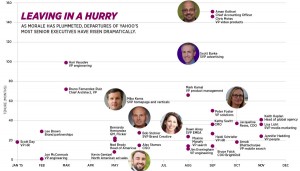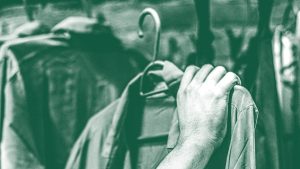Everyone wants to be more productive. We created an infographic to help explain science-based ways to be more productive. All of them are simple to do and free.
Working Overtime Will Burn You Out
In most companies, productivity and loyalty are measured by how many hours an employee spends at their desk.
Judging loyalty and productivity by hours worked is the wrong attitude to have, as research clearly shows that it lowers performance and causes mental and physical health issues.
A study published in the American Journal of Epidemiology found that working longer hours reduces your cognitive functions.
Researchers asked subjects to complete different tests measuring vocabulary and verbal recall. Those who worked 55 hours per week showed poorer vocabulary and reasoning than those that worked 40 hours.
Working longer hours increases your risk of depression. All that time spent sitting at your desk at work does massive damage to your body.
People who work longer report sleeping less, which has enormous effects on your health and causes you to be less productive at work.
Multitasking Kills Productivity
One of our posts called “Multitasking, The Ultimate Productivity Killer” where I dove deep into the science behind why multitasking just doesn’t work.
Even though the economy is improving slightly, workers are expected to do more with less, leading to multitasking. As tempting as this might be for a manager in the short-term, it is not good for the long run.
The research showed that productivity can be reduced by as much as 40 percent by the mental blocks created when people switch tasks.
Learning how to prioritize can help you focus on what matters at work.
Walking Spurs Creativity
The effects of sitting all day at work take a serious toll on your health. Sitting has been called the new smoking, and it’s encouraged to get up and walk at a minimum every 30 minutes.
Researchers at Stanford University wanted to look at the effects of walking vs. sitting.
They found that creativity improved by an average of 60% when the person was walking. Even more interesting, they found that it was simply the act of moving, not necessarily being outside in nature that spurred creativity.
In their experiment, the participants that were indoors and on a treadmill were more creative.
Walking meetings are a great idea, because they make you more creative and take you out of your usual context, which helps you come up with new ideas.
Take A Nap
Naps have been proven to recharge your brain, which is perfect for that afternoon energy crash we all experience.
The following is taken from an amazing article written by Michael Hyatt about the importance of napping:
- A nap restores alertness
- A nap prevents burnout
- A nap heightens sensory perception
- A nap reduces the risk of heart disease
- A nap makes you more productive
Many progressive companies have nap pods in their offices because they understand the value of their employees being well-rested to be at maximum productivity.
Natural Light Makes You More Alert
Many people might not have the luxury of being able to sit near a window, but for them I’d say try and go outside as much as you can.
Research shows that getting that natural light from a window will lead to a better night’s sleep. When you get a better night’s sleep, you’ll come in well rested the next day and be much more productive.
Northwestern researcher Ivy Cheung tracked workers, where half of them worked near a window, and the other half worked in windowless rooms.
The workers that sat near the windows slept for an average of 47 minutes longer each night.
Saying No Helps You Focus

The difference between successful people and really successful people is that really successful people say no to almost everything.Warren Buffett
In order to have the best return for your investment of time on tasks, you need to prioritize and stay laser-focused. There’s no way that you could accomplish everything on your to-do list, and every little interruption costs you time.
Learn how to say no to things that won’t have a significant return for you, and focus your efforts where it will make a difference. It’s much better to do 5 things incredibly well, then 10 things half-ass.
Saying “no” is easier said than done, because we all want to be nice to others, but it will help you get ahead.
Perfectionism Is Dangerous
Over the years, there have been several studies that have found links between perfectionism and mental health issues such as depression, anxiety, drug addiction, and increased suicide risk.
Studies have also found links between perfectionism and physical problems like asthma, migraines, and irritable bowel syndrome.
This is most likely due to the amount of stress perfectionists place on themselves.
Research has also shown that perfectionists have a 51 percent increased risk of death due to high levels of stress.
If you’re a perfectionist, you need to learn to relax and let things go. It’s very likely that you will burnout because perfectionists are never satisfied, so they’re always overworking. Seriously, just relax.
Take Time To Think

I find that people work, work, work and don’t think, think, think, and that the percentage of time people work versus think is off. I’ve tried to shift that, and I try to think lot and try to increase the amount of time I spend thinking about things versus on the phone or in a meeting or emailing people.Brian Halligan, HubSpot CEO
In a four-year study, researchers tracked the work habits of employees at the Boston Consulting Group.
In the experiment, consultants scheduled one weekly night of uninterrupted personal time, even though they were used to working from home in the evenings.
Everyone on the team resisted at first, thinking they would only be postponing work.
Over time, the consultants learned to love their scheduled time off because it consistently refreshed them, and made them more willing to work, which made them more productive overall.
After five months, the employees in the experiment were more satisfied with their jobs, more likely to envision a long-term future at the company, more content with their work-life balance and prouder of their accomplishments.
Work In Sprints
More than 50 years ago, a sleep researcher named Nathan Kleitman discovered that at night when we sleep, we go through a period of light to deep, then back to light. This process takes 90 minutes.
He later discovered, that our bodies operate by the same 90 minute rhythm during the day.
When we’re awake, the movement is from higher to lower alertness. This is what’s known as our “ultradian rhythm.”
Many of us will ignore what our bodies are trying to tell us and try and eat or grab another coffee to power through the day. This is the wrong way to go about working. We need to take time to rest and recuperate, to come back feeling fresh and ready to go.
How Can You Be More Productive?
Do you have any tips to be more productive at work? We are always looking into how to be more productive at work, so let us know in the comments below!
(183)
Report Post







